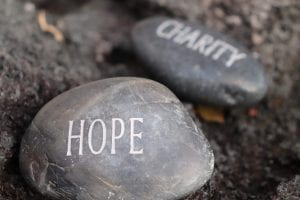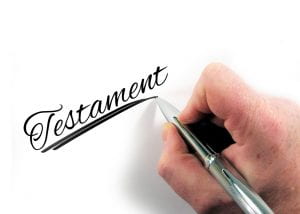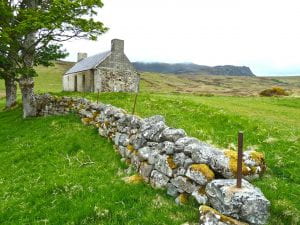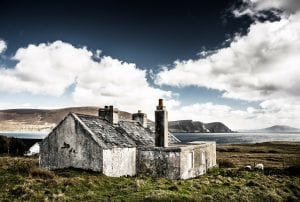This twitterchat for #ANZAncestryTime was based on wills and probate records. Some of the tweeters have written blog posts relating to the topic:
- Sue – Will, will or will
- Alex – Isabella Sinclair 1 and Isabella 2
- Pauleen – trawling trove, money matters, probate and deceased estates
- Maggie – George Tunnecliffe

What interesting discovery have you made in a Will or Probate Record? How did this help your research?
Names, names, names! Confirmation of relationships, discovery of property details, so much detail in wills and probate records.
I found wills of certain ancestors very interesting, particularly my half 2xgreat uncle in the UK who provided the names of all his nieces and nephews. How easy it to obtain wills in New Zealand and Australia
Deb, in NZ the wills and probate are held at archives. Many are scanned and available via @FamilySearch. Check Archway first and there is a link to the documents in Archway. Fran
I have found a lot of good information in Wills or in Probate records. Best is usually the married names of the daughters. Sometimes some puzzling ones like why certain people are missing
I’ve had this too – sometimes it’s because those people have been helped financially in some way before death, so weren’t left anything. Or, were automatically left property due to inheritance rules, so didn’t need to be included
I learnt that one of my 2nd great grandfathers was probably not too happy with his son, my great grandfather, like many others weren’t. He had behaved badly over decades, and let many people down.
You want to find the true stories Karen but sometimes they can be disappointing
This is a great example of things we wouldn’t ordinarily know about an ancestor’s relationship. Wills are invaluable for research
Haven’t been fortunate enough to have an ancestor with one…
with a irish wills you can use Australia as a search term capturing people who lived in Oz or who left $ to family in Oz.
Very true Pauleen My g g grandfather’s Will in Ireland told me where his seven daughters had all emigrated to in the US and who they married. Very helpful
I have another will from an Irishman who married into the family. He left his farm to his daughter. Only I have idea where it is. It was nearly 100 years ago.
I have an Irish Will where my three times g grandfather left a bed to a granddaughter…. 🙂
In another Irish Will I discovered where an old mirror and hairbrush set my grandmother gave me came from and how old it was
A will confirmed what seemed obvious by the birth date – a son was really a grandson but was adopted by his grandparents
My paternal GF died young, predeceasing his mother, leaving my GM a widow with a 13 year old child in the 1940s. My paternal great GM died a few years later & only left money to her surviving adult children & nothing to my father. I can’t forgive that
My great grandmother was excluded because they had Brought up her illegitimate child…stated in will
I can’t understand it. Someone said to me not to judge the past by present expectations, but I’ve found plenty of wills from that time and earlier where provisions were made for grandchildren when parents had died
Best record was husband’s grandfather’s probate had birth certificates of his mother and aunt both within the 100 yr cut off
One of my biggest breakthroughs came through a probate record in London Gazette. It was my aunt’s biological father. Details on next of kin pointed me to his daughters & I was able to reunite sisters who had never met. I was so nervous about contacting someone out of the blue but it turned out well. I agonised over a letter, but then decided I couldn’t stand the wait. I rang her! Thank goodness some people still pick up the phone.
I’ve used relatively recent probates to track down family Brooke and had success with a letter, but have baulked at contacting another because the death of the person was too recent (for me) to feel comfortable. In time maybe
gt grandfather in 1907 left his land to daughter seems ahead of his time. Son did already have some land.
I found a probate packet at the Qld State Archives containing an inheritance dispute that was more than interesting. And another where the dispute lasted 40 years!
Another great-grandfather’s will reflected his financial circumstances – not good – but showed his life insurance and his portable house. The life of a railway family.
A new Zealand Will proved a family family story about a ‘missed out on inheritance’ was untrue. The money belonged to a second wife. There was no family money…
An English Will showed me that a daughter was really an adopted niece. So a whole new search ahead
Best discovery was a will from a half aunt of my fathers. Turns out the money was not left to the cattery as per family lore although listed was many piece of china and who should receive them.
I love the details in wills, especially those left by women, as they often mention extended family, and smaller items as bequests.
I have found that my female ancestors tended to leave things to servants much more than males did
My Northern Irish ancestors all seemed to outlive their husbands and make Wills. They had substantial land ownings luckily for me
@geniaus encouraged me to get the probate for my 2nd great-grandmother Isabella Ellis nee Sinclair. Boy oh boy was it jam packed with information. I was fascinated to see how she lived in the same suburb I did as a baby.
I found my grandfather had left me a piano which I played often as a child but not since we moved house in the late 1960s
Also found out my great great grandmother’s married sister was childless and left everything to nieces and nephews
I found a missing Scottish ancestor in an asylum in Australia. His will showed that a person who wasn’t a family member, left him a large amount of money
My great grandfather had a complex will which verified family details and raised issues about the actions taken. He had wills in the UK, Qld and NSW.
My great/grand uncle left an interesting will with several large donations to missions and charities incl Indigenous advancement. His choices were based on religious affiliations.
My 4x great grandmother’s will confirmed I had found the right family back in England (and later doubly confirmed with DNA), wsa such a great moment reading it!

What can you discover about ancestors in Wills and Probate records and why are these important resources?
I discovered a daughters married name from a second husband, the daughters step father, to explain their link. With “step” relatives sometimes being omitted from inheritances, this was nice find
Didn’t learn too much that was unexpected. The one long will I saw from the early 20th century was extensive. Hard to read – in legal jargon, with no full stops. It gave me contact to a person I knew nothing about as his son had abandoned his family.
I ended up transcribing my gxgrandfather’s will so it made sense to me even though it was typed up.
Names of married daughters and sons-in-law. Other complex relationships. How wealthy they were. Where they lived. And their signatures.
wills can provide more personal details like what items were passed to various relatives and friends too.
Who had fallen out with whom!!
Not for my family I was researching for the @WikiTreers challenge and found out someone was married twice led me to search for second wife and death of first
Contesting of Wills found in Probate records can be extremely interesting.
You’ve reminded me, I have an ancestor who contested the will of his ex wife. It went to the High Court, but he lost. She left him a small portion with the rest to her children. He thought he should get more.
It can answer questions like, of all the brothers/sisters why did Pa inherit the house? The will showed Pa inherited house only if he continued to care for his disabled brother in that house.
I discovered a daughters married name from a second husband, the daughters step father, to explain their link. With “step” relatives sometimes being omitted from inheritances, this was nice find.
You can discover information about their descendants e.g. who’s still alive when they died and their relationships. You can find out about property. And you can get an idea of their lifestyle from what is listed in the inventory.
Finding wills or probate can give great details about their property & financial circumstances and may tell of family conflicts or previous $ support. Combined with other documents gives a comprehensive view.
Wills can show family relationships, and missing people. The wealth and assets left by a person can show the type of lifestyle they lived
Have found land being passed to children and directions of where that land is or what it is called in wills.
A2: Wills bring your ancestors lives to light: My GM left the washing machine and fridge to Dad before she gave instructions about the property. ANZAncestryTime pic.twitter.com/KdJCcX1BRm
— fran kitto (@travelgenee) July 13, 2021
What related records have you used? ie Intestacy, Administration, Guardianship, Deceased Estate Files? Can you think of similar resources?
I’ve looked in death duty registers (England) for more details of an ancestor’s beneficiaries: nationalarchives.gov.uk/help-with-your… Sadly in my case, the “eldest daughter of my son George” was still not named!
I agree death duty registers can lead to more questions. Revealed a trust indicating which side of the family the wealth came from.
Witnesses signatures are also treasured finds
I also like that they touched the wills and then I have touched them. Though my photos from Archives in NZ are not as nice as the digital copies. Many are off centre
Agree Fran, that’s what makes holding originals so special.
Probate Packets can contain the Will, Court documents, a death certificate, an inventory of the estate and more
If deceased estate files survive/exist (as for NSW) they can be a gold mine detailing the person’s household effects. It makes you curious where the paintings & other assets went.
Intestacies (and wills) may reveal a residence far away, provide a death certificate and perhaps more info on the death
I have used Wills, Probate and Intestacy Files. Sometimes newspapers will tell you if a Will was contested so you know to go looking for the Probate records
The NZ High Court documents have probate material along with the will although nothing no exciting discoveries from this material for me.
I found about 33 pages of documents about one ancestor here. Completely and utterly unexpected that anyone in my family had been in NZ. archives.govt.nz Also, probatesearch.service.gov.uk/#wills

Where can we find Wills, Probate, Administration Files, Intestacy Records and Deceased Estate Records? Suggest resources for understanding these records.
You can search for NZ records at @FamilySearch: familysearch.org/search/collect… or Archway archway.archives.govt.nz/Home.do
Just had a quick search on Archway and found will for my 3xgreat uncle and his son, woop..
’10 Tips for Finding & Using Wills, Intestacies, Probate records & Related Documents for Genealogy’: bit.ly/332wkrO. I’m not online right now but I scheduled this to be posted
I am just so used to all Tassie records being online, will need to check where probate records can be found
For finalised probate records from 1825 to 1995, enquire with the Tasmanian Archives and Heritage Office
In Tasmania, wills and letters of administration are online at the Tasmanian Names Index at Libraries Tasmania website
A summary from @nswarchives detailing what could be in the probate packets for #ANZAncestryTime NRS-13660 , Probate packets search.records.nsw.gov.au/primo-explore/…
Title Deeds to houses and land often contain information about deaths and inheritance. It can be worth searching the Land Registry website and Title records
I was looking through some 18th century title deeds for a property and came across a will for the earliest known owner. What a bonus!
I found some wills here, but not for my families AJCP research trove.nla.gov.au/search/categor…
I found the result of a will discussed in a letter that was sent from my family in Scotland to my family in the USA. The siblings were the inheritors. As my gggfather wasn’t included, he must have already died. Narrows down when.
Margaret I have a family letter from the 1800’s from Scotland explaining why a son was left out of the Will. He was Illegitimate. But for the letter the family didn’t know
you can search for SA wills on FamilySearch
Transmission of property indexes by death can be helpful. Land transfers before death may give a clue why there isn’t a will.
Advertisements in newspapers will alert you to a will under probate. News stories may detail info on the property, if large. Advertisements for sale of property after death.
I find it handy to have a currency converter at hand when reading Wills. I really like this one nationalarchives.gov.uk/currency-conve…
#ANZAncestryTime A4 I listened to Cathy Sherwood’s talk last week on Legacy https://t.co/uKQYs4faHJ. She reminded us that probate can be in a number of jurisdictions if your ancestor owned property in different states. She also found a will in the Land Registry office in NSW.
— alex daw (@luvviealex) July 13, 2021
this webinar might be helpful. records.nsw.gov.au/archives/webin…
They will mostly be in archives, including Public Curator files. Newspaper advertisements will provide clues to a will being probated and who is the primary inheritor.
In Victoria Wills Files can be found at the Public Records Office Many but not all are online @PRO_Vic
Readers: What is a fascinating discovery you have made while searching wills etc?

